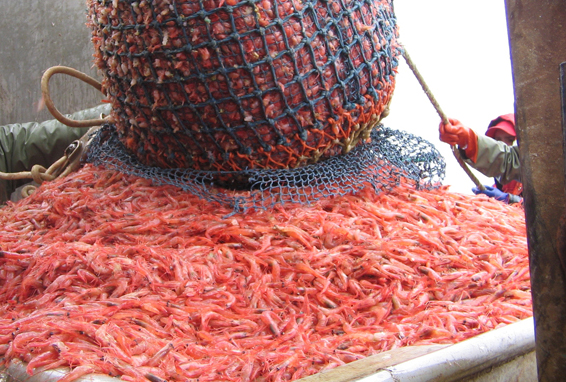
The domestic shrimp industry generates $1.3 billion and supports more than 14,000 jobs each year for Louisiana’s economy.
WASHINGTON — The future of the U.S. shrimp industry and a “way of life” in the Gulf region are threatened if the government doesn’t set duties on the large volumes of foreign shrimp flooding the domestic market, shrimp producers said Tuesday.
The USITC is investigating whether subsidized frozen warmwater shrimp imports from seven countries – China, Ecuador, India, Indonesia, Malaysia, Thailand and Vietnam – are causing material injury to the domestic shrimp industry, as alleged by a petition from the Coalition of Gulf Shrimp Industries, which represents shrimp producers from Louisiana, Mississippi, Alabama, Texas and Florida.
The producers say the subsidized foreign shrimp cause prices to drop in the U.S., but distributors and retails are fighting the proposed duties, saying shrimp prices have been rising.
At the final-phase hearing, Louisiana Lt. Gov. Jay Dardenne urged the council to impose countervailing duties, which would increase the cost of subsidized imports to how much they would have cost without subsidies.
“Shrimping is about much more than economics – the men and women who catch our prized Gulf shrimp would call it a way of life,” Dardenne said.
“Allowing foreign countries to continue to engage in unfair practices will force Louisiana folks to relinquish their heritage.”
The U.S. imports six to eight pounds of shrimp from the seven countries under investigation for each pound of shrimp that is produced domestically, the coalition said.
“Customers frequently quote import prices in negotiations,” coalition lawyer Elizabeth Drake said. “And if domestic producers cannot lower their prices to meet the import quote, they lose sales.”
Carson Kimbrough, president of Carson & Co. Inc., a shrimp wholesaler from Bon Secour, Ala., said his “customers have been quoting lower prices for imported shrimp on a weekly basis” for the past three or four years.
According to Drake, the domestic industry’s gross profit margin decreased to 7 percent in 2012 and U.S. producers were earning only 25 cents on each pound of shrimp.
“Domestic producers have also been forced to delay or forgo needed capital investments due to the instability in the market caused by subsidized imports,” she added.
However, Warren E. Connolly, general counsel for a group of seafood distributors and retailers opposing the imposition of countervailing duties, argued that conditions in the domestic industry “have actually gotten much stronger this year, not worse.”
“Prices for domestic and imported shrimp soared by 20 percent or more in the second and third quarters of 2013,” he said.
Connolly also offered an alternative explanation for the low prices that domestic shrimpers have encountered.
“The domestic industry treats shrimp as a commodity and sees buyers as focused solely on getting the lowest price,” he said. “This view of the shrimp world is exactly the problem – they still don’t realize that many of their prices are low because they have endemic quality problems.”
The USITC is expected to vote Sept. 19 to decide if countervailing duties will be imposed.
